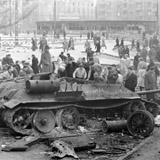
On Democratic Internationalism
Struggles for democratization are always local struggles: the first thing their protagonists want is a state governed by the people who live in it. We must relearn how to support them.


Struggles for democratization are always local struggles: the first thing their protagonists want is a state governed by the people who live in it. We must relearn how to support them.
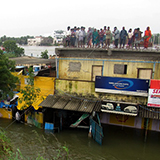
Last December’s floods in Chennai illustrated the devastating consequences of a development model that puts profits before people. But they also hinted at what a democratic response to climate disaster might look like.

Beyond the delegate race lies the Sanders campaign’s larger potential: that a rising generation will emerge from it to transform American political life in ways that until recently seemed impossible. Here’s where they might start.

Politicians like Lula and Rousseff should neither be above the law nor prosecuted outside it. As Brazil weathers corruption scandals and a democratic crisis, history reminds us that ignoring due process carries grave dangers.
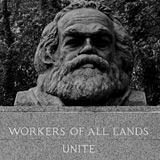
An interview with Thomas Laqueur about his book The Work of the Dead: A Cultural History of Mortal Remains.
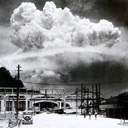
Seventy years after the bombing of Hiroshima, we still live in the mushroom cloud of secrecy and permanent emergency imposed by nuclear weapons.
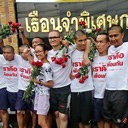
In the year since a military coup brought General Prayuth Chan-ocha and his fellow officers to power in Thailand, repression of protest has taken on a scale not seen in the country since the 1970s. But a courageous group of activists are pointing the way toward a new movement for democracy.

In February, Dissent and the India-China Institute co-hosted a panel on “Asia and Dissent in a Time of Strongman Leaders” at the New School, with Alexis Dudden speaking on Japan’s Shinzo Abe, Nina Khrushcheva on Russia’s Vladimir Putin, Ross Perlin on China’s Xi Jinping, and Sanjay Ruparelia on India’s Narendra Modi. The panel was moderated by Dissent editorial board member Jeffrey Wasserstrom.

In its call for electoral democracy, the Umbrella movement sought to challenge China’s tight grip on Hong Kong politics. But Hong Kong’s protesters have yet to confront the deeper interests tying their future to that of the mainland.

Please join us this Thursday in NYC for a roundtable discussion with experts on China, India, Japan, and Russia, hosted by the India-China Institute at the New School. Moderator: Jeff Wasserstrom, Chancellor’s professor of History, University of California at Irvine; …

As gross human rights violations against the country’s ethnic groups continue, can peace and democracy really take hold?

Pro-democracy activism in China takes many forms. For longtime labor activist Han Dongfang, it starts on the shop floor. In this Belabored bonus edition, the veteran of the Tiananmen Square uprising and director of China Labour Bulletin discusses his vision for social change in China, and the promise and the peril of labor organizing in the engine of global capitalism.
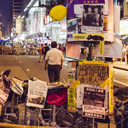
Can the “umbrella movement” shake Beijing’s grip on Hong Kong’s silent majority?

What has happened to the young men and women of the New Left? The movement is invisible these days, a specter regularly invoked only in neoconservative writings. Where have all the “kids” gone? Many of them are simply burnt out, …